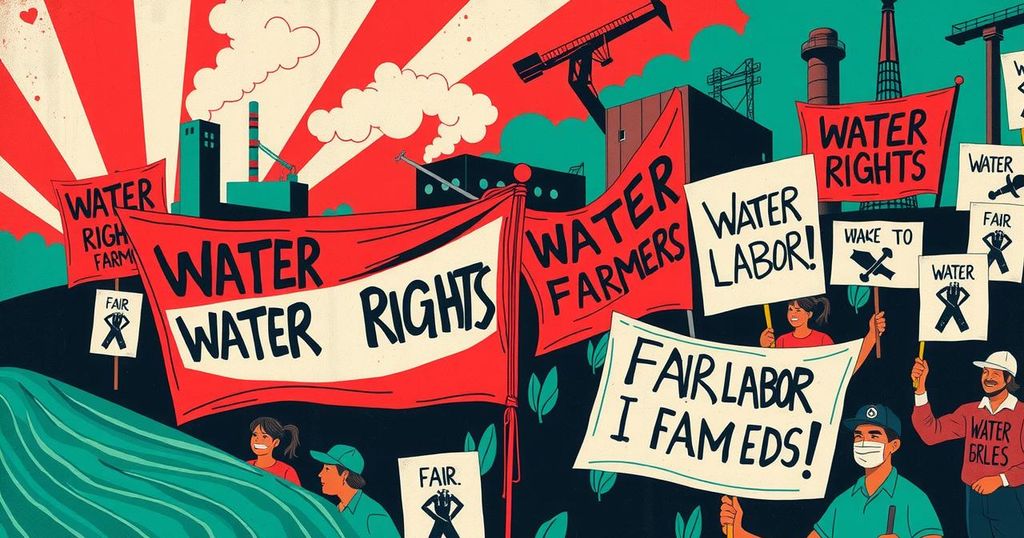Protests in Iran are intensifying as farmers, workers, and families of political prisoners unite to demand justice. In Isfahan, farmers are seeking to restore their water rights, while workers in the oil sector protest for better wages. Additionally, families continue to rally against death penalties for their loved ones, highlighting widespread dissatisfaction with the regime’s policies and practices.
Protests in Iran are escalating as various sectors of society express their discontent with governmental mismanagement and repression. From the farmers in Isfahan advocating for water rights to oil workers in Lavan fighting for fair wages, the demonstrations reflect profound grievances against the regime.
On March 28, Isfahan farmers gathered for renewed protests, demanding the reopening of the Zayandeh River to restore their water supply. The ongoing crisis stems from government mismanagement and diversion projects favoring military interests, severely impacting the livelihoods of many farmers. Despite some water being released, skepticism prevails about the regime’s commitment to resolving the crisis.
The farmers’ protests highlight a broader issue of water scarcity in Iran, worsened by the policies of the Islamic Revolutionary Guard Corps (IRGC), which prioritize industrial activities over agricultural needs. Farmers voiced their frustration, stating, “We only want water, yet they steal it and tell us not to protest. How can we stay silent?”
On March 26, workers from the Iranian Offshore Oil Company in Lavan resumed their protests, demanding fair wages and improved working conditions. In Shush, workers from the Haft-Tappeh Sugarcane Company also took to the streets, reflecting labor unrest and the growing dissatisfaction in the workforce amid worsening economic conditions.
Families of political prisoners participated in weekly protests on March 25, marking “No to Executions Tuesdays”. Demonstrators gathered outside Evin Prison, advocating for the abolition of death sentences for their family members, focusing on cases such as Vahid Bani-Amerian and Pouya Ghobadi, who are facing execution.
On March 27, an armed attack on a police patrol in Iranshahr resulted in one officer’s death and injuries to two others, highlighting increasing tensions in the area, which is notorious for clashes between security forces and local resistance movements. Despite state media’s attempts to downplay the incident, the unrest in Iran reflects broader societal concerns.
As these assertions of discontent continue across various demographics, the Iranian regime is confronted with mounting resistance. Whether it be farmers, workers, or families of prisoners, the underlying issue is a widespread dissatisfaction with systemic corruption and oppression, suggesting that protest movements will persist in the foreseeable future.
The protests in Iran, encompassing farmers, workers, and families of political prisoners, reveal a collective demand for justice, fair treatment, and accountability from the government. With ongoing unrest stemming from issues such as water rights, labor conditions, and human rights, it is clear that societal discontent remains pervasive. These growing movements indicate that the Iranian regime faces significant challenges as calls for reform and justice continue to resonate throughout the nation.
Original Source: www.ncr-iran.org






